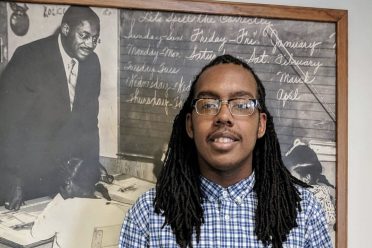Foundation supports COVID-19 response efforts to protect vulnerable, connect families, develop rapid testing
BOSTON – As families across the country suffer the health, economic and social consequences of COVID-19, the Patrick J. McGovern Foundation has awarded new grants to frontline organizations supporting vulnerable populations and families in need.
The grants – nearly $2 million total – represent the latest of the McGovern Foundation’s $8.9 million commitment to respond to COVID-19. The grants will help organizations in Massachusetts and California’s Bay Area address urgent needs with homeless communities, low-income families, the elderly and those facing chronic illness and COVID-19. Two grants to MIT support promising research into the development of rapid diagnostic testing and the development of a new drug treatment for the infection.
The new awards include:
- Pine Street Inn to create overflow and quarantine spaces within Boston’s homeless shelter system by retrofitting dormitory space at Suffolk University for elderly, disabled or otherwise vulnerable homeless individuals who are high risk.
- Chronicle Season of Sharing to provide emergency support for housing and critical needs for families and individuals affected by COVID-19 in the Bay Area.
- Boston Medical Center to support Boston’s COVID-19 surge relief effort with up to 250 hospital beds for homeless individuals in Boston who have tested positive for the infection.
- MIT’s J-Clinic for research that uses the clinic’s AI-generated breakthroughs to identify a new drug treatment for COVID-19.
- Community Servings to provide medically tailored, nutritious meals for more low-income individuals in Massachusetts who have weakened immune systems from critical and chronic illness such as HIV/AIDS, cancer, kidney disease, diabetes and heart disease.
- Family Independence Initiative to provide Northern California families in need with one-time emergency cash relief of $500.
- Meals on Wheels, San Francisco for expanded meal services for the elderly.
- MIT’s McGovern Institute to support the development of CRISPR technologies to rapidly diagnose COVID-19.
- COVID-19 Tech Connect to provide hospitals and hospice centers with free Wi-Fi-enabled smartphones or tablets so that families are able to communicate with their hospitalized loved ones who have COVID-19 and cannot receive visitors.
- Tipping Point Community to offer quick, flexible financial assistance to families in need in the Bay Area.
The Foundation’s earlier awards of more than $3 million focused largely on health system responses that can be rapidly deployed to flatten the curve and include:
- Community Care Cooperative (C3) to rapidly expand telehealth capacity in community health centers statewide in order to better fight the COVID-19 epidemic.
- Ariadne Labs at Brigham and Women’s Hospital and the Harvard School of Public Health to provide evidence-based COVID-19 protocols for ambulatory health care services; hospital practices—including infection control and capacity management; lower- and middle-income health system preparedness and response; and, community mitigation and social distancing.
- Northeastern University’s Network Science Institute for real-time data-based modeling and analysis of the disease trajectory to inform world health officials and advise governors across the U.S.
- Dimagi for a complete mobile application and visualization solution tool for community-based surveillance and contact tracing for COVID-19.
- Strike Labs to gather real-time data from U.S. hospitals on infection counts, PPE supplies and ventilator availability, create a database and make it available to responsible parties.
- Praekelt to support HealthAlert, a mobile application which disseminates geographically customized, timely and updated information on COVID-19 via What’s App


